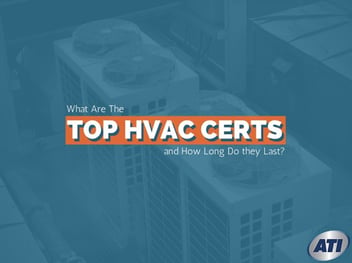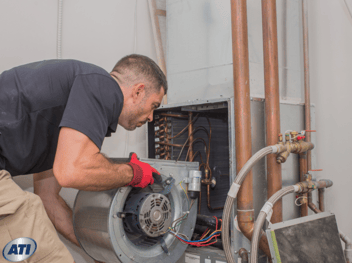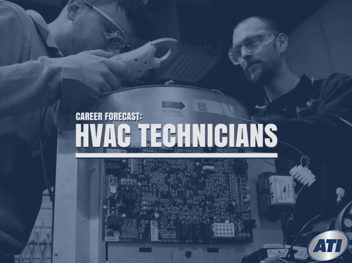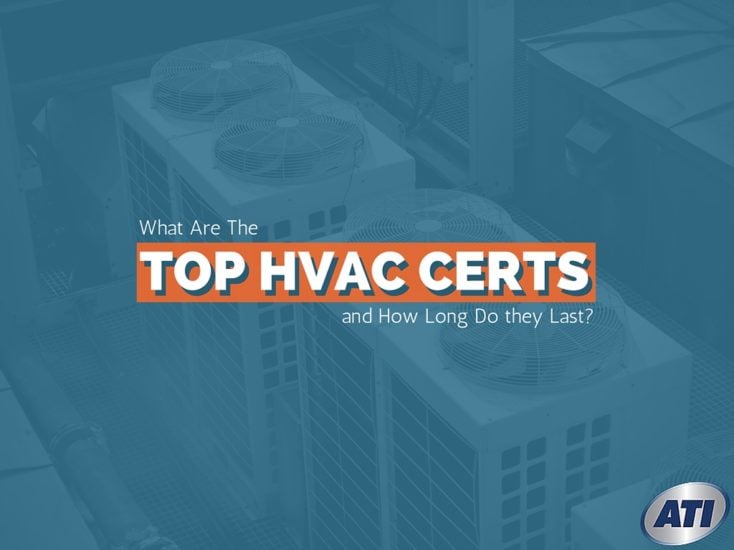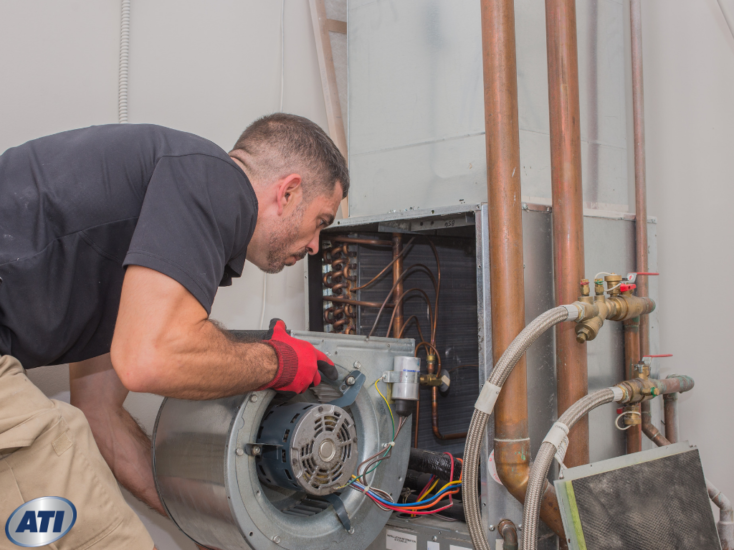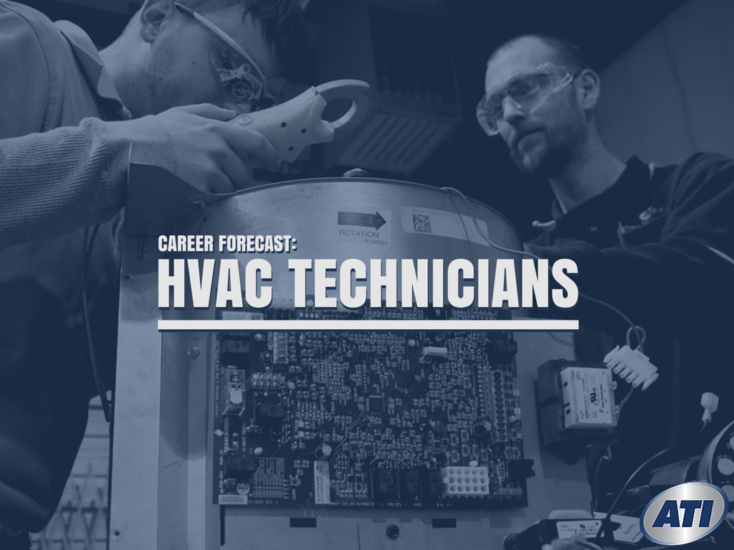3 Must-have HVAC Certifications for Top Techs
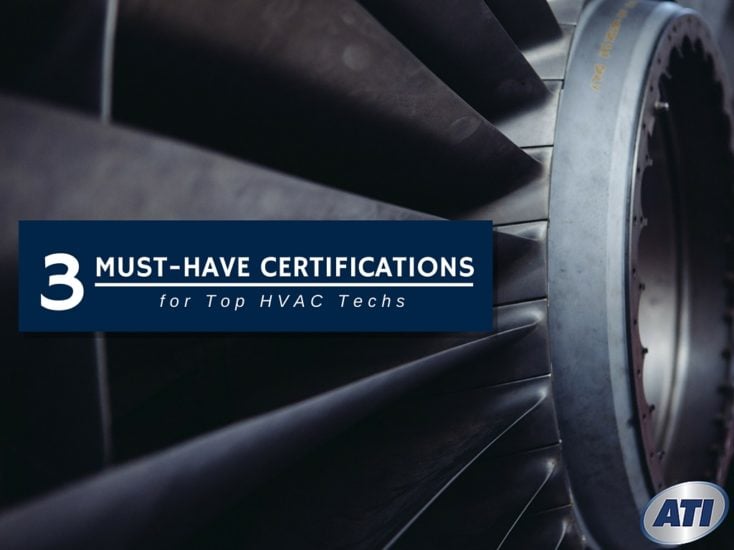
The demand for skilled HVAC technicians is on the rise across the country. In fact, anticipated job growth with nationwide opportunities are two of the greatest factors for those deciding to move forward with a career as an HVAC technician. But as with any industry that deals with new technologies, being competitive in this field means staying on top of training and industry-specific certifications. The following is a brief synopsis of the best certifications for any skilled HVAC and Refrigeration technician to have:
NATE Certification
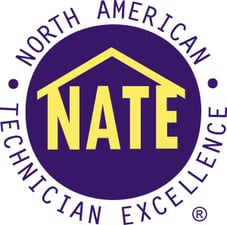 The North American Technician Excellence (NATE) certification is the gold standard for technicians. This is a nationally recognized and respected certification that, while not legally required, is highly recommended for any technician working in the heating, ventilation, air conditioning, and refrigeration (HVAC/R) industry. To obtain this certification, a technician must pass a knowledge-based exam developed and administered by industry experts that illustrates they are better prepared for the workforce and more adept at handling difficult scenarios. Technicians with NATE certification earn more money, typically stay in the industry longer, and have a greater rapport with clients.
The North American Technician Excellence (NATE) certification is the gold standard for technicians. This is a nationally recognized and respected certification that, while not legally required, is highly recommended for any technician working in the heating, ventilation, air conditioning, and refrigeration (HVAC/R) industry. To obtain this certification, a technician must pass a knowledge-based exam developed and administered by industry experts that illustrates they are better prepared for the workforce and more adept at handling difficult scenarios. Technicians with NATE certification earn more money, typically stay in the industry longer, and have a greater rapport with clients.
HVAC Excellence Certification
The HVAC Excellence certifications are other prominent industry certifications that are lean more on promoting experience than book smarts. The two more prestigious of these certifications are known as the ‘Professional Level’ and the ‘Master Specialist Level’.

To earn the Professional Level in HVAC Excellence Certification, a technician must prove that they have a minimum of two years of field experience as well as score well in a comprehensive exam highlighting specialty HVAC/R topics such as residential heat pump and ventilation services. To go one step further and earn the Master Specialist Level in HVAC Excellence Certification, a technician must prove a minimum of three years of field experience in addition to having already obtained the Professional Level Certification.
EPA 608 Certification
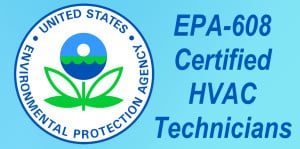 As an HVAC/R technician, you’ll be working with equipment that uses refrigerant which is a hazardous compound that requires sensitive handling. Because of this, the Environmental Protection Agency (EPA) requires any technician or contractor that’ll be accessing systems or containers that store refrigerant to obtain special EPA 608 certifications. There are four different types or levels of the EPA 608, each of which pertain to different types of equipment and refrigerant exposure. A technician may need to only obtain one, depending on their duties, while others may seek to pass the required exams and obtain the highest level certification for greater job growth. The following is a quick break down of these four types of EPA 608 Certifications:
As an HVAC/R technician, you’ll be working with equipment that uses refrigerant which is a hazardous compound that requires sensitive handling. Because of this, the Environmental Protection Agency (EPA) requires any technician or contractor that’ll be accessing systems or containers that store refrigerant to obtain special EPA 608 certifications. There are four different types or levels of the EPA 608, each of which pertain to different types of equipment and refrigerant exposure. A technician may need to only obtain one, depending on their duties, while others may seek to pass the required exams and obtain the highest level certification for greater job growth. The following is a quick break down of these four types of EPA 608 Certifications:
- Type I Certification. Specific for the installation and repair of small appliances such as window air conditioners, domestic refrigerators, and vending machines.
- Type II Certification. Specific for the installation, repair, and disposal of equipment and appliances containing high pressure refrigerant such as heat pumps, residential air conditioners, process refrigeration, and commercial refrigeration.
- Type III Certification. Specific for the installation, repair, and disposal of equipment and appliances containing low pressure refrigerant common in more complex industrial equipment.
- Universal Certification. This fourth type of certification denotes a technician’s ability to install, repair, and depose of all types of equipment no matter the refrigerant type.
State Licensing for HVAC/R Technicians
A state license provides proof to both an employer and a client that a technician has been professionally trained and is qualified according to state board requirements. If you are trained in one state, but move to another, it’s important to contact your new state’s professional licensing department to learn about the specific requirements for a license and how to proceed.
Becoming an HVAC/R Technician
Getting the best certifications and a state license affords you more privileges and greater opportunities, such as the promotion to supervisory or managerial positions. In ATI’s HVAC tech program, we understand that getting a foundational education is just the beginning, which is why we are also an authorized NATE testing center and offer all of the EPA 608 Certifications for refrigerant handling. When you study with us, you’ll have extensive hands-on experience through training and the opportunity to obtain the aforementioned certifications during the period of your studies. So when you finish your degree in HVAC/Refrigeration, you’ll be better prepared for the workforce with the confidence earned from real hands-on experience and backed certifications at your disposal.
The ceremony is about to begin! #ATI #ATIGRAD pic.twitter.com/8SJb0Nb02L
— ATI (@AdvTechInst) August 14, 2015
To learn more, contact us today at 800-468-1093 or view a more comprehensive break-down of ATI’s HVAC Technology with Service Management (AOS) degree program.
DISCLAIMER – Advanced Technology Institute (ATI) makes no claim, warranty or guarantee as to actual employability or earning potential to current, past or future students or graduates of any educational program offered. The Advanced Technology Institute website is published for informational purposes only. Every effort is made to ensure the accuracy of information contained on the AUTO.edu domain; however, no warranty of accuracy is made. No contractual rights, either expressed or implied, are created by its content.
Gainful Employment Information – HVAC Technology with Service Management (AOS)
Gainful Employment Information – Air Conditioning & Heating Technology (Diploma)
For more information about Advanced Technology Institute or any of our programs click here: http://www.auto.edu/ or http://ow.ly/VoydP.
Industry Knowledge
Welcome to the Advanced Technology Institute's Blog, your resource for industry insights and discussions on technologies shaping the future of automotive, heavy vehicle, hvac, welding, and other related career paths.
Explore how ATI's curriculum and hands-on learning opportunities can propel your career in the tech-driven world.

